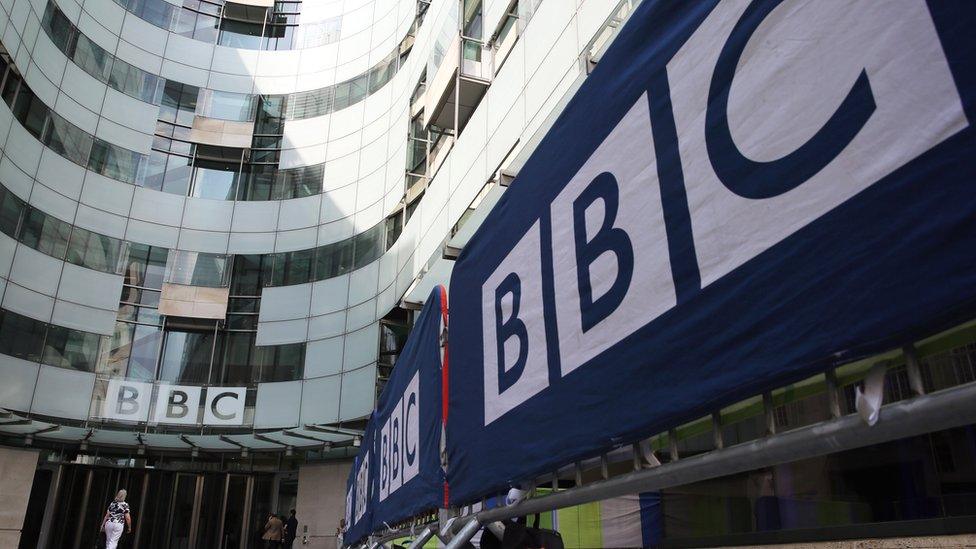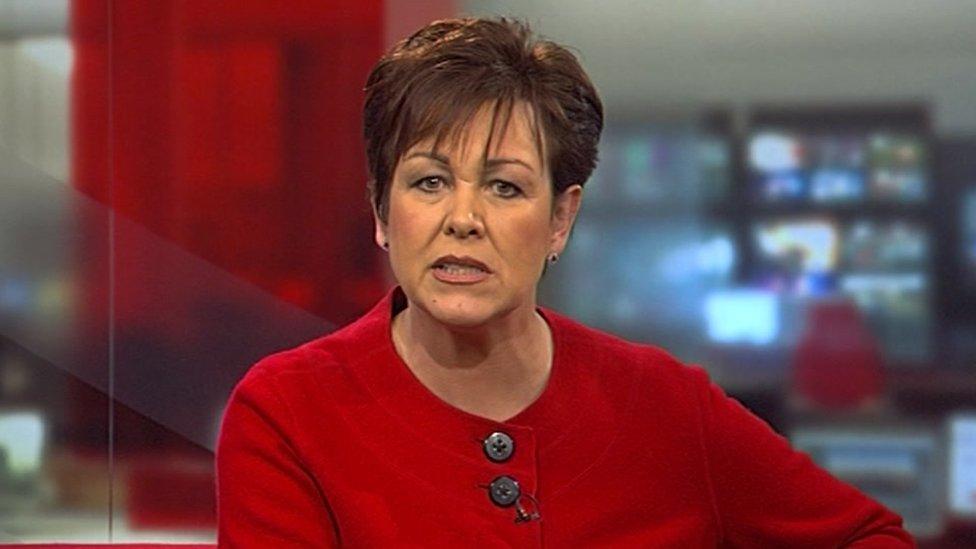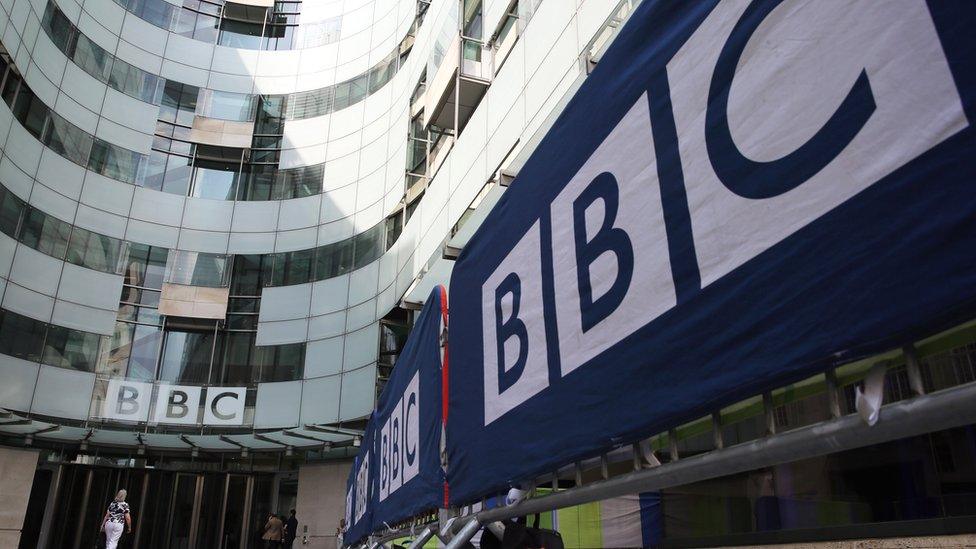BBC accused of not untangling 'mess' over freelancers' tax
- Published

The BBC has been accused of not "fully untangling" the "mess" over some presenters' tax affairs.
The chair of the Public Accounts Committee, Meg Hillier MP, said some freelancers had been left in "desperate circumstances".
Her comments come as the spending watchdog, the National Audit Office, published a report into the BBC's arrangements with its freelance staff.
It found 800 BBC presenters could potentially be asked to repay tax.
Some presenters' unpaid tax bills from HMRC run into thousands of pounds.
And HMRC is currently investigating around 100 BBC freelance staff, the report said.
The BBC said it "recognises there are still issues to address and remain committed to resolving them".
What is the controversy about?
The BBC hires thousands of freelancers: in 2017-18 it hired 60,000 including actors, entertainers and off-air workers.
Some of the freelancers it hires operate as a "personal service company". This means the person is self-employed, rather than being employed onto the BBC's payroll. It is legal and is common across the media industry.
Before April 2017, any freelancer working for the BBC as a PSC had to inform HMRC of their employment status for tax purposes - such as self-employed or employed - ensuring they would pay the correct amount of tax.
But after April 2017, a change in the law meant it was up to public bodies like the BBC to become responsible for determining the employment status of PSCs it hired.
In 2017, the BBC started using a new HMRC tool to assess the employment status of its freelancers. This started giving different results. Before, the majority of on-air freelancers were classed as self-employed but with the new tool they were classed as employed.
In March this year, a group of 170 presenters wrote an open letter expressing dissatisfaction with how the BBC handled the changes.
Questions were also raised during a parliamentary select committee in April this year about how the BBC used PSCs.
What did the watchdog find?
According to the NAO, the BBC has taken steps to help the affected individuals.
It said the BBC previously announced its plan to set up an independent mediation process for presenters who were hired through PSCs and who now believe the BBC bears some responsibility for the HMRC's demands.
But the report said issues relating to the BBC's relationship with its freelancers remain "unresolved and may have financial implications for the corporation".
It said that between April and September 2017, the BBC paid £8.3 million of tax (in advance) to HMRC to avoid any penalty charges for not paying tax that was potentially due. It has not fully recouped the money yet.
What has Meg Hillier said?
Meg Hillier MP, who chairs the Committee of Public Accounts - the group of MPs in charge of scrutinising public spending - said more needed to be done to ensure certainty for freelancers working for the BBC .
"The Public Accounts Committee raised concerns about the BBC's use of personal service companies six years ago," she said.
"It is worrying that, six years on, the mess of clarifying the employment status for tax purposes of people the BBC hires through PSCs has not been fully untangled.
"With around 100 investigations into PSCs still outstanding, the BBC and HMRC must work together to ensure certainty for freelancers working for the BBC.
"Particularly for those freelancers who have been left in desperate circumstances."
What have the BBC and HMRC said?
A HMRC spokesman said: "Presenters are now increasingly paying the right tax and most do.
"Where presenters have not paid the right amount of tax it is right that we enforce the law so people are treated equally and fairly."
The BBC has approached HMRC to discuss the possibility of an alternative approach to resolving cases.
A BBC spokesman said: "As the NAO recognises, personal service companies are a legitimate way of contracting for services used by many across the media industry.
"However, determining whether an individual is employed for tax purposes is complex and in managing this we have always sought to balance the interests of our workforce and the licence fee payer.
"We recognise there are still issues to address and remain committed to resolving them. We are currently in discussions with our presenters and are actively engaged with HMRC to explore the options for resolution."
- Published15 February 2018

- Published7 October 2016
